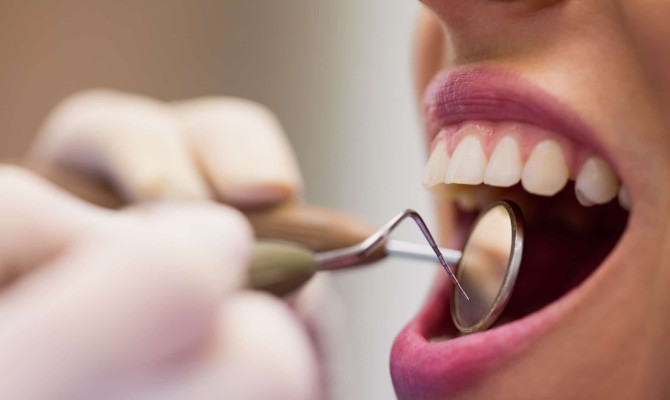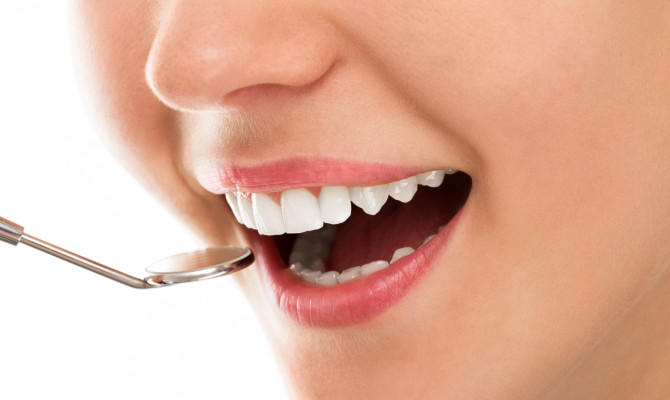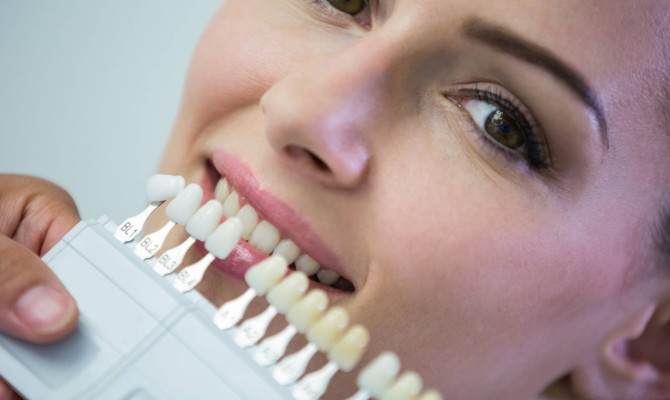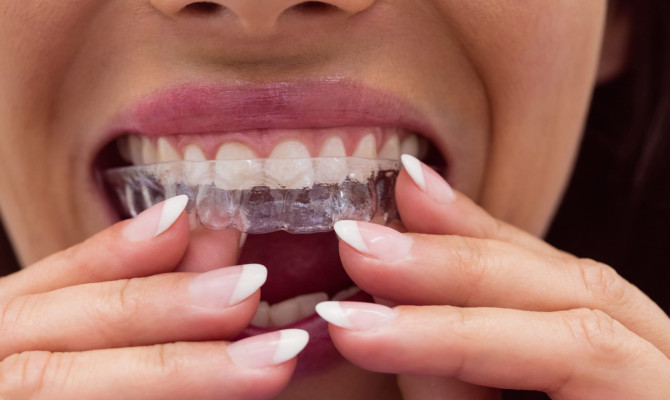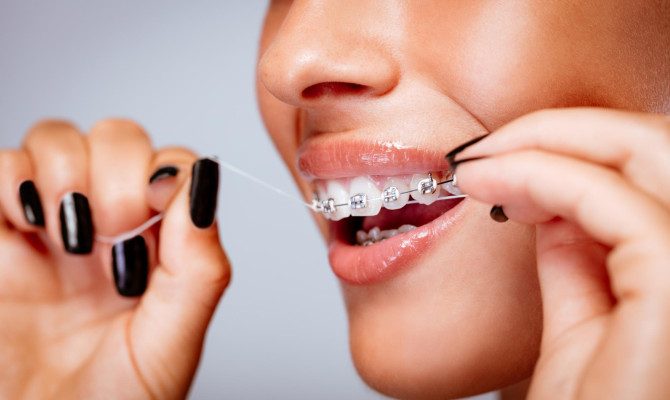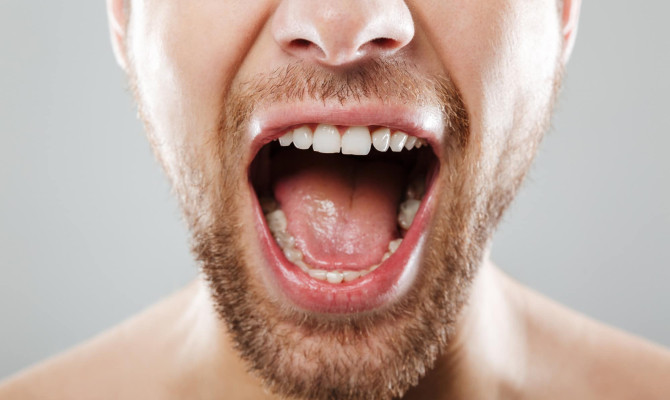Dentures : What do I need to know

- Denture
- 22 Aug 2023
Overview
What are dentures?
Artificial teeth and gums are used in dentures to replace missing or extracted natural teeth. They are individually crafted to fit each person’s mouth and can be made to fit either the upper or lower jaw.1Overview | Researched based study from Nlm.nih.gov

Types
What are the various types?
Full dentures
- All teeth in the upper or lower jaw are intended to be replaced by them. They are designed specifically for the patient’s mouth, and suction holds them in place.
Partial dentures
- When a patient still has some of their natural teeth in the upper or lower jaw, they are utilized. They are designed to fit around the remaining teeth and can be removed for cleaning.
Immediate dentures
- They are intended to be worn right away following tooth extraction. Typically, they are used as a stopgap measure while the gums recover and permanent dentures are being created.
Overdentures
- They resemble complete dentures, but they are made to fit over natural teeth that are already present or dental implants. They provide the denture with more stability and support.
Dentures supported by implants
- They are made to be held in place by dental implants. They can increase cleaning capabilities and are more solid and safe than conventional dentures.1Types| Researched based study from Nlm.nih.gov
Signs

Signs one might need dentures
There are a number of causes why someone might need dentures.
Tooth decay
- People who have lost one or more teeth due to an accident, decay, or periodontal disease may need to replace them.
Oral disease
- Advanced gum disease can lead to tooth loss, which may require dentures as a replacement.
Aging
- Our teeth may weaken and become more vulnerable to decay as we age, which can result in tooth loss.
Trauma
- Accidents and traumas can cause tooth loss, which necessitates tooth replacement.
Congenital disorders
- Dentures may be required because some people are born without teeth or have diseases that cause tooth loss.
Functional issues
- They could help those whose missing teeth make speech difficult.4Sign| Researched based study from Nhs.uk
- The aesthetics of a person’s smile, ability to chew, and pronunciation can all be improved with dentures. They might also help protect the gums and remaining teeth from further harm.
A dentist or prosthodontist should be consulted if you have any of these problems to assess whether dentures are the best course of action for you.
Benefits
What benefits do dentures have to offer?
By improving the appearance of your smile you can appear younger and more natural. Other benefits are
Increased comfort
- Improved capacity for speaking and eating.
Oral health
- Doing this may shield your gums and remaining teeth from additional harm.
Increased self-confidence
- Increases your social comfort and self-assurance, enabling you to speak and smile more naturally.
Cost-effective
- They are more economical than the alternatives.6Benefits| Researched based study from Jaypeedigital.com
Procedure
What is the procedure of getting a denture?
Consultation
- The dentist will inspect your mouth, take impressions of your teeth and gums, and go through the many denture options that may be suitable for you at this visit.
Oral evaluation
- To evaluate the condition of your remaining teeth and gums, the dentist will examine your mouth. Before the denture-making procedure can start, any teeth that require extraction will be done so.
Impressions
- Using a mold or digital scanner, the dentist will take impressions of your teeth and gums. Your mouth will be considered when a custom-fit denture is made using these impressions.
Adaptation and fitting
- You will test the denture once it is finished to ensure it fits well. The dentist will make any changes required to ensure that the denture is cozy and correctly works.
Final fitting
- The final denture will be offered following the revisions. The dentist will demonstrate how to put on and take off the denture and provide you with care and maintenance guidelines.2Procedures| Researched based study from Nlm.nih.gov
It’s vital to remember that creating a denture might take weeks or even months, depending on the kind and health of the patient.
Eating
Eating with dentures
- Beginning with soft food -Start with soft meals, such as soups, eggs, and mashed potatoes, when putting on your dentures. Doing this lets you practice speaking and chewing while wearing your dentures.
- Food should be broken down into little bits-To simplify chewing, cut your meal into small pieces and take a small mouthful.
- Eat slowly-Use both sides of your mouth to distribute the pressure while you chew your meal gently and appropriately.
- Skip the hard and sticky meals-Gum, caramels, and other hard candies should not be chewed since they could break or displace your dentures.4Eating | Researched based study from Nhs.uk
Speaking
Speaking using dentures
- Speaking exercises-Read aloud or talk with yourself in the mirror while you practice.
- Start slowly-Start with simple words and phrases, then gradually progress to longer, more complex statements.
- Use facial expressions-Use movements and facial expressions to better convey your message.
- Speak clearly-Improve your speech by pronouncing your words correctly and intelligibly.
Keep in mind that it takes time and repetition to become used to speaking and eating with dentures. Be kind to yourself and don’t be ashamed to ask for help when you need it. You’ll eventually feel at ease and confident with them.4Speaking | Researched based study from Nhs.uk
Discomfort
Common discomfort and methods to relieve them
When you start wearing dentures for the first time, pain is normal.
Sore spots
- When your dentures brush against your gums, sore patches may develop.
- Apply a small amount of denture cream or glue to the sensitive region to relieve them.
- Get them adjusted by your dentist if the discomfort doesn’t go away.
Speaking and eating difficulties
- This will take some getting accustomed to, but with practice it will get simpler.3Discomfort| Researched based study from Cda-adc.ca
Excessive saliva
- When you initially begin wearing them, it’s normal to notice an increase in salivation. This should stop in a few days.
- If it doesn’t go away, try swallowing more often or sucking on sugar-free candies to help increase salivation.
Irritation
- Remove them and rinse your mouth with warm saltwater if you experience irritation. Additionally, you could use a bit of denture cream or adhesive.3Discomfort| Researched based study from Cda-adc.ca
- Speak with your dentist if the pain doesn’t go away.
Maintenance
Maintenance steps for dentures
How often do I need to visit my dentist?
- A few weeks after receiving your dentures, your dentist will set up a follow-up visit. They will check to see if your dentures are fitting correctly and make any required modifications during this time.
- Additionally, your dentist will check on your dentures regularly to ensure they’re in good shape and conduct any required maintenance or alterations. Bring them with you so your dentist may examine them at these sessions.
How do I keep my denture clean?
- To increase their longevity, keeping them clean and well-maintained is crucial. Brush them often with a soft-bristled toothbrush and mild soap or denture cleaner. Properly rinse them in warm water when not in use and keep them in a denture cup with water.
Oral Health
- Brush your tongue, remaining teeth (if applicable), and gums twice daily to maintain proper dental hygiene.3Maintenance| Researched based study from Cda-adc.ca
Handle carefully
- Being fragile, dentures are easily broken or damaged. Never drop your dentures or apply excessive pressure to them; instead, handle them carefully.
Cleanliness
- Denture cleanser or regular brushing will help you keep your dentures clean.
Storage
- When not in use, keep them in a tidy, dry location. To prevent them from drying out or deforming, store them in a denture cup filled with water or a denture-soaking solution.
Avoid extreme temperatures
- Your dentures can break or face other damage if exposed to extremely high temperatures. Keep them away from hot water, intense sunlight, and severe heat or cold sources.3Maintenance| Researched based study from Cda-adc.ca
Keep children and pets away from you.
- Keep them away from kids and dogs so they can’t mistake them for toys or gnaw on them and ruin them.3Maintenance| Researched based study from Cda-adc.ca
Denture adhesives: When should I use them?
Updated dentures
- A denture adhesive can provide extra support while waiting for your mouth to become used to your new dentures if you recently got new ones. You may also find it easier to adjust to wearing them.
Loose dentures
- An adhesive can help hold your dentures in place and keep them from slipping or shifting if they feel loose or do not fit properly.
Dry mouth
- An adhesive can help seal the gap between your dentures and gums if you have a dry mouth, which helps lessen sensitivity and discomfort.3Maintenance| Researched based study from Cda-adc.ca
Replacement
When should dentures be replaced?
Damage
- If you have a cracked or damaged denture. Even little cracks or chips might cause discomfort or severe harm if ignored.
Changes in fit
- Your denture’s fit can change due to changes in your mouth’s shape or wear over time. It could be time to consider getting a replacement if your denture often falls out of position, is unpleasant, or feels loose.
Wear and tear
- Dentures can become stained or worn down over time, which reduces their functionality and aesthetic appeal. It could be time to consider a replacement if worn, discolored, or otherwise unappealing.
Any discomfort or pain
- Your denture may need to be changed or modified if it is giving you discomfort, irritation, or other problems.
Age
- Dentures are not designed to be worn permanently; as they age, they may lose some of their functionality or comfort. You could need a new denture if your current one is over a few years old.5Replacement| Researched based study from Nlm.nih.gov
Takeaway
Key Takeaways
- For people who have lost some or all of their natural teeth, dentures may be a great solution.
- Dentures can survive for many years if cared for and maintained correctly.
- Working closely with your dentist is essential whether you are considering getting dentures or currently have them to ensure correct fitting, upkeep, and general oral health.
Any feedback on this article?
 This Articles content was accurate
This Articles content was accurate Very Informative Article
Very Informative Article I have a question or a comment
I have a question or a comment
 This article contains inaccurate content
This article contains inaccurate content This article was not helpful
This article was not helpful I have a question or a comment
I have a question or a comment
We appreciate your helpful feedback!
Checkout our social pages
References
-
National Library of Medicine
Types of dentures | Types
-
National Library of Medicine
Functional Impressions in Complete Denture and Overdenture Treatment | Procedure
-
Canadian Dental Association
Dentures | Maintenance
-
National Health Service
Dentures (false teeth) | Eating | Speaking | Sign
-
National Library of Medicine
Complete denture replacement: a 20-year retrospective study of adults receiving publicly funded dental care | Replacement
-
Jaypee Brothers
Complete Dentures | Benefits












